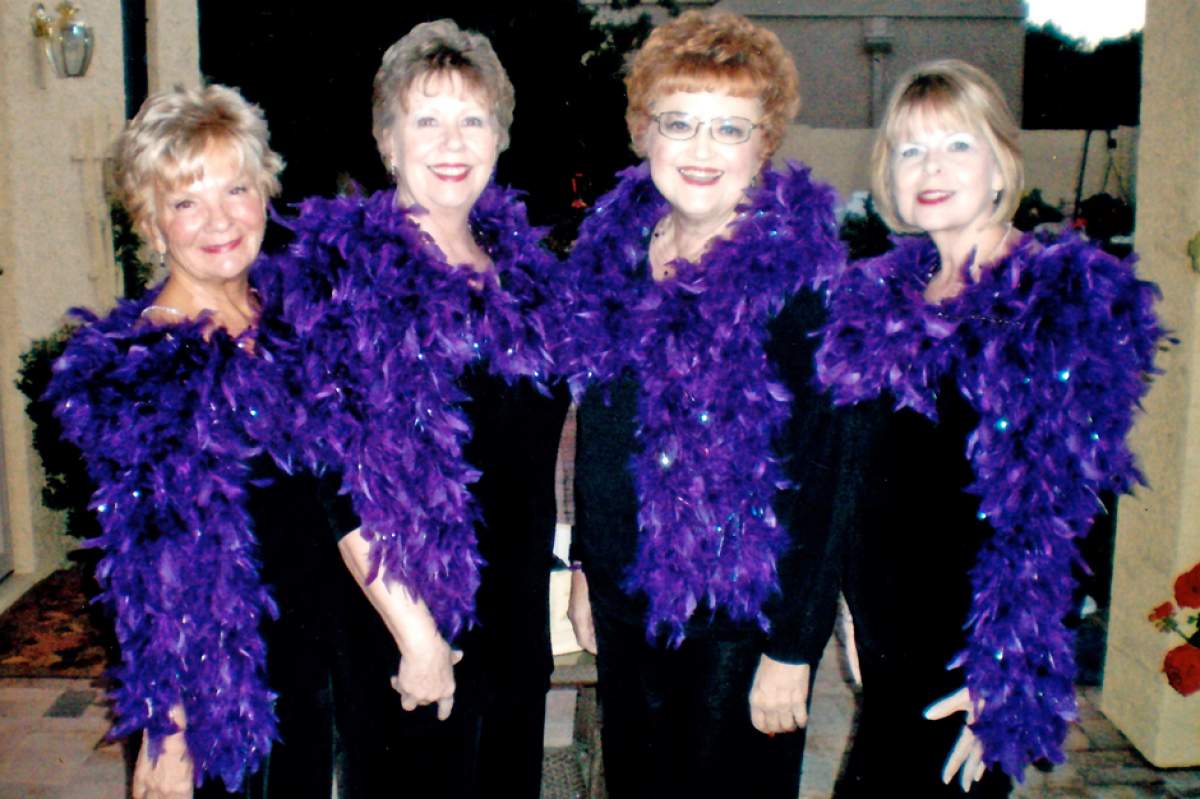
A signal event in Mary Ellen Stepanich's life occurred on her first day at school. A bright, inquisitive girl, she was so vocal that her teacher taped her mouth to keep her quiet.
"When your mouth is Scotch-taped shut, and your teacher says, ‘Now, be quiet,' that has an effect on a six-year-old." says Stepanich, a retired Purdue University professor who taught strategic management and other business courses.
The attempts at silencing her didn't work. "Unfortunately there is in me a streak of rebellion," she says with a laugh. "I just could not be content with keeping my mouth shut."
After a lifetime of what she calls "disastrous value programming" from her family, three bad marriages and one good one, and a mass of inner conflicts that made her "Hoosier schizo," Stepanich has written an autobiography with a happy ending.
Speaking from her home in Arizona, she told WFIU's Adam Schwartz about the salvation she found in group singing, as described in her memoir: D is for Dysfunctional . . . and Doo Wop.
ADAM SCHWARTZ: You write about one thing above all that you wanted most.
MARY ELLEN STEPANICH: I wanted to be a professional singer. I really thought that that was the life for me. Because it would get me out of small town America, get me out of constraints I felt growing up. I felt it would free me to a life that was more than I had ever imagined.
A Dream Shot Down
MES: I always say the defining moment that changed the direction in my life occurred when I was 21. I was one of the finalists in the Chicago Sun Times Harvest Moon Festival contest for singers. It was kind of like the American Idol of that time. I was called by a band leader who offered me a job singing with his band. I thought that was the opportunity to become the professional singer and performer that knew I could do.
I called my mother to tell her about it, and she shot me down. She said "No! You absolutely cannot do that. You don't realize the kinds of things musicians will do to you, the kind of life you will get into." And like a fool, I listened to her, and I turned down the job.
Salvation In Four-Part Harmony
AS: It took you many years to find your voice, didn't it?
MES: Yes, it did. . . . Â Fortunately, music came into my life and it is through music that I was able to express myself.
I see music as a way to communicate when others have told me to shut up. Through music and singing, I'm able to connect with people in ways I could not do it through speaking.
AS: And that was mostly through singing with barbershop quartets?
MES: Exactly. I found the Sweet Adelines when I was maybe 30 and it has been a very significant part of my life. I have been in choruses, I've directed choruses, I've been in quartets. I've won contests, international contests . . . .
It has given me an experience that I'd always dreamed for myself [but was] not able to find-a career in music. Because, again, of the programming I received that said, "No, that's not a decent occupation for a young woman from Indiana."
Finding Mr. Right
AS: In your book you describe your four marriages-three unsuccessful ones culminating in a fourth, happy one. What did those marriages teach you?
MES: What I learned overall was something I finally did. And that was to be upfront and honest about my needs and desires and wants. And to be accepting of another person's needs and wants. To be willing to listen to that, and to work out basically a compromise: "I will do everything I can for you, you will do everything you can for me, to make this work."
Moments in Time
AS: All of the chapters in your book are song titles-"Put Your Arms Around Me, Honey," "March On (You Fighting Sycamores)," "Thanks for the Memory."
MES: Yes. I think I chose song titles because songs so beautifully reflect moments in time. We joke amongst the elderly people that we know-we start to lose a little bit of our memory, and we might forget what we had for breakfast, but I can sing lyrics of every song written in 1940.






